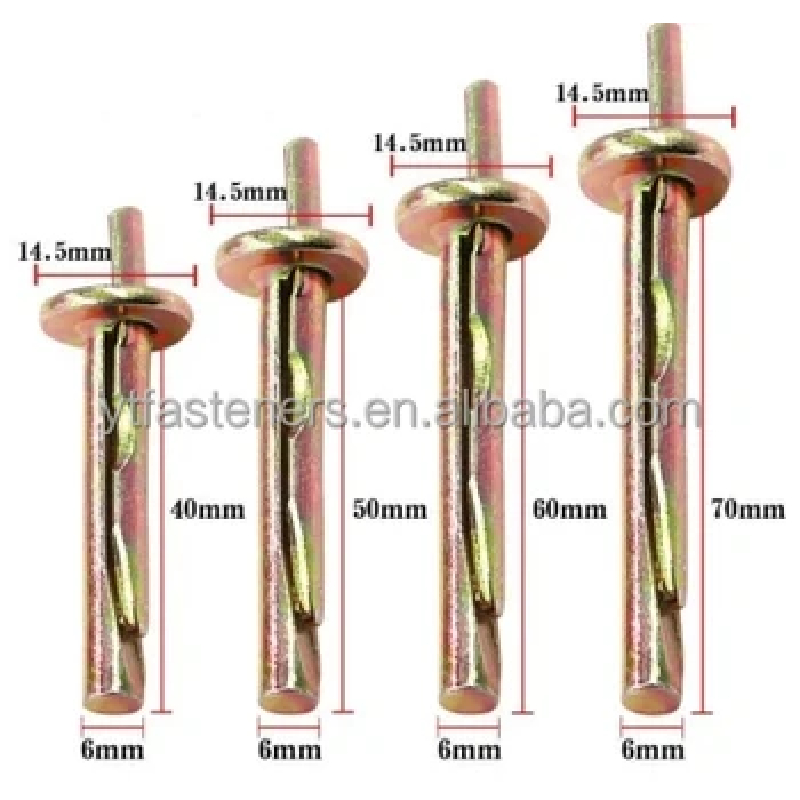Dec . 05, 2024 00:29 Back to list
screw fasteners
The Importance of Screw Fasteners in Modern Engineering
Screw fasteners are essential components in a wide array of mechanical assemblies, holding together everything from household furniture to sophisticated aerospace structures. As a fundamental element of mechanical engineering, screws contribute not only to the functionality of products but also to their durability and safety.
Definition and Types of Screws
At its core, a screw is a cylindrical rod with a helical ridge, known as a thread, wrapped around its shaft. This design allows screws to convert rotational motion into linear motion, thus enabling them to tightly secure materials together. Screws come in various types, sizes, and materials, each suited to specific applications. Common types include wood screws, machine screws, self-tapping screws, and sheet metal screws.
1. Wood Screws These screws are specifically designed for use in wood. They typically feature a tapered body and coarse threads, which facilitate easy penetration into wooden surfaces.
2. Machine Screws Often used in conjunction with nuts or tapped holes, machine screws are characterized by their uniform diameter and fine threads. They are commonly found in metalworking and are used to fasten various components in machinery.
3. Self-Tapping Screws These screws create their own mating thread in the material they are driven into, making them ideal for quick assembly in various applications, including plastic and thin metals.
4. Sheet Metal Screws Designed to fasten thin sheets of metal, these screws have sharper threads that can grip the material firmly.
The Role of Screw Fasteners in Various Industries
screw fasteners

Screw fasteners play a pivotal role across different industries. In the construction sector, for example, screws are widely used for joining structural components, ensuring that buildings are assembled securely and can withstand environmental stresses. In the automotive industry, screws are critical for chassis assembly, engine mounting, and securing interior components, making them vital to vehicle safety and performance.
In the electronics field, screws are used to assemble devices like smartphones and computers, where precise tolerances and secure fastening are essential for functionality and aesthetics. Similarly, in the aerospace industry, the reliability of screw fasteners is paramount, as they help to ensure the safety of passengers and crew by securing critical components under extreme conditions.
Advantages of Using Screw Fasteners
Screw fasteners offer several advantages over other joining methods, such as welding or adhesive bonding. One of the primary benefits is their ease of installation and removal. Unlike welded joints, which are permanent, screws can be easily tightened or loosened, making maintenance and repairs straightforward. This feature is crucial in industries where equipment frequently needs to be serviced or replaced.
Additionally, screw fasteners distribute stresses evenly across the joint, which enhances the integrity of the assembly. This uniform distribution minimizes the risk of failure at any given point, contributing to the longevity of the product. Moreover, screws are available in a range of materials—including stainless steel, brass, and plastic—allowing engineers to select the most suitable option for specific environmental conditions, such as corrosion resistance or thermal stability.
The Future of Screw Fasteners
Looking ahead, the development of screw fasteners is likely to be influenced by advancements in materials science and manufacturing technologies. Innovations such as self-locking screws and smart fasteners that can monitor tension and load will further enhance the performance and reliability of these critical components. Additionally, the integration of screws with non-destructive testing methods could improve quality control and durability assessment in various applications.
In conclusion, screw fasteners are indispensable in modern engineering. Their versatility, ease of use, and ability to provide strong, reliable connections make them a preferred solution in numerous applications. As technology evolves, we can anticipate even more innovations in screw design and application, ensuring that these essential components continue to play a vital role in the development of safe and efficient products for various industries.


